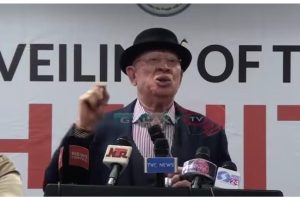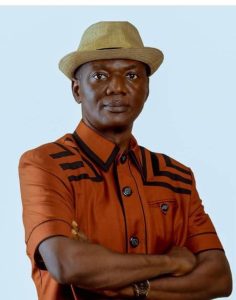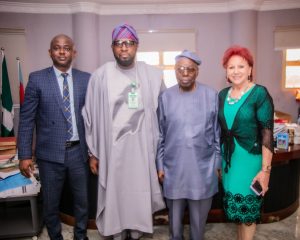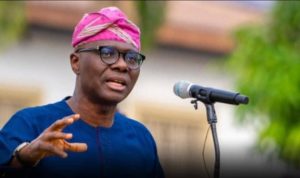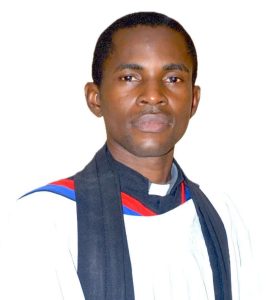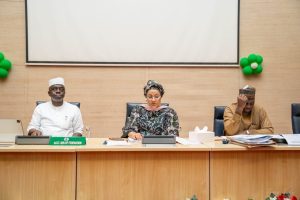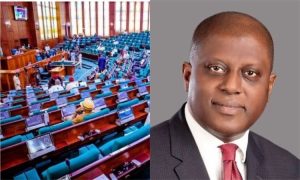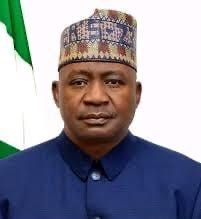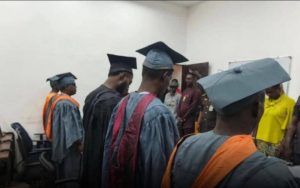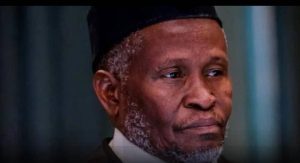By Damilare Adeleye
Key industry experts have proffered some some solutions to address issues bordering on stable and sustainable electricity supply in Nigeria.

During a webinar organized by the Nigerian Economic Society (NES), Lagos State Chapter, on August 1st, the stakeholders, who highlighted various issues affecting the electricity sector in the country, harped on the effective implementation of 2023 Electricity Act for the power sector to attain greater height, and be consistent with global energy transition and the attainment of Sustainable Development Goal 7.
The webinar tagged: ‘Electricity Act, 2023, and State Participation in the Electricity Industry: Changing the Rules and Advancing the Pathway to a Sustainable Energy Future’, had Professor Akin Iwayemi as guest speaker while Dr. Oni Ayodele, Mr. Banjo and Dr. Geoduck were discussants of the session.
While urging the government to investigate prevalence and effects of electricity theft in among household in Nigeria, they tasked the government to conduct studies on appropriate power generation mix through the integration of power generation technologies with low operating costs as a precursor to achieving efficient economic load dispatch in the Nigerian electricity supply industry.
They also charged state governments to conduct an honest assessment of their individual uniqueness to determine their role in their respective energy market either as an investor, a facilitator, or both as provided by thr 2023 Electricity Act.
During his speech, Professor Iwayemi gave a panoramic overview of the electricity industry in Nigeria in the last few decades. Essentially, he raised some cogent questions on why power supply as of 2024 remains at the same level as what is obtainable in 2000 in Nigeria despite the Electric Power Sector Reform Act, 2005, and the unbundling and privatization of electricity generation and distribution in Nigeria in 2013.
He also provided some background information on the nature and character of the electricity sector in Nigeria in terms of electricity consumption, electricity access, inadequate capacity, electricity theft, and persistently high tariffs. The guest speaker provided some explanations on the transfer of the power sector from state monopoly to market, which he anchored on a number of factors such as fiscal crises, inefficient performance of state parastatals, changes in economic thinking, and advancements in technology.In explaining the movement from the state to the market in Nigeria, the erudite scholar pointed out that prices have not fallen in nominal terms in adequacy and unreliable electricity service sector inefficiency and low productivity, shrinking financial market space for market operators compared to prior unbundling four years ago, shrinking fiscal space to support state-owned segment of the sector, resistance to tariff increase and lack of market competition.
However, in order to avoid the pitfalls of the previous exercise, the learned professor suggested that steps must be taken into consideration especially in advancing the pathway to sustainable electricity and energy future: strategic options and policy imperatives, some pertinent issues must be addressed.
“First, the need for correct characterization of the sector’s problem is an essential step in finding effective and sustainable solutions to the longstanding problem. For instance, is electricity a public, quasi-public, or private good? The perception of the public and the government on this has implications for pricing and capacity to bring the market to equilibrium. Second, the distribution of reform gains and costs matters, and recognition of the political economy of reform benefits and costs is an important determinant of reform progress, stalled reform, or reform regress. How to incorporate policy design and implementation of the strategic contest between importers and vendors of generators, the potential losers from the reform effort, and the new owners of the unbundled sector, potential winners in the new electricity market game, is crucial.
“Third, a single buyer model market design is a problem, hence the need for other options. Fourth, sector unbundling is not enough to guarantee the emergence of a more competitive electricity sector underpinned by robust network investment and significant gains in sector efficiency and productivity. Fifth, state regulatory framework and sector unbundling are necessary but not sufficient for securing the scale of investment in network infrastructure required for the establishment and sustenance of an efficient electricity market. Lastly, application of relevant economic principles is fundamental in the efforts to re-engineer the stalled transition from state ownership and control to a more competitive electricity sector in which market participants make most of the investment and supply decisions.”
In support of the submission of Professor Iwayemi, Dr. Oni stressed the need for academia to come in and assist policymakers. He equally argued that states are not forced but rather given the option to create their electricity markets, thusly emphasizing the need for states to understand the electricity market in order to avoid the problem of policy reversal in the decision-making process.
Mr. Banjo asserted that the Electricity Act 2023 and the involvement of states have great opportunities. He added that state regulation should be sufficient to deal with energy theft and collaboration with existing state structures, including information on citizens for better customer engagement. He noted that states need to start considering how to make up shortfalls (subsidy) within their states either through FAAC allocation or OGR.
Dr. Goodluck equally admitted the potential of the Electricity Act 2023, saying that the law, as a document, is not perfect but is in the right direction. He argued that states are in a better position to minimize the incidence of electricity theft.






